Öffentliche Kapitalmärkte und die Entstehung von Startups
Diese Forschungsgruppe untersucht die Entstehung von Startups mit Fokus auf der Rolle etablierter Unternehmen als Anbieter von Kapital und qualifizierten Beschäftigten für die Gründung und das Wachstum von Startups.
Forschungscluster
Wirtschaftliche Dynamik und StabilitätIhr Kontakt

- Abteilung Gesetzgebung, Regulierung und Faktormärkte
Referierte Publikationen
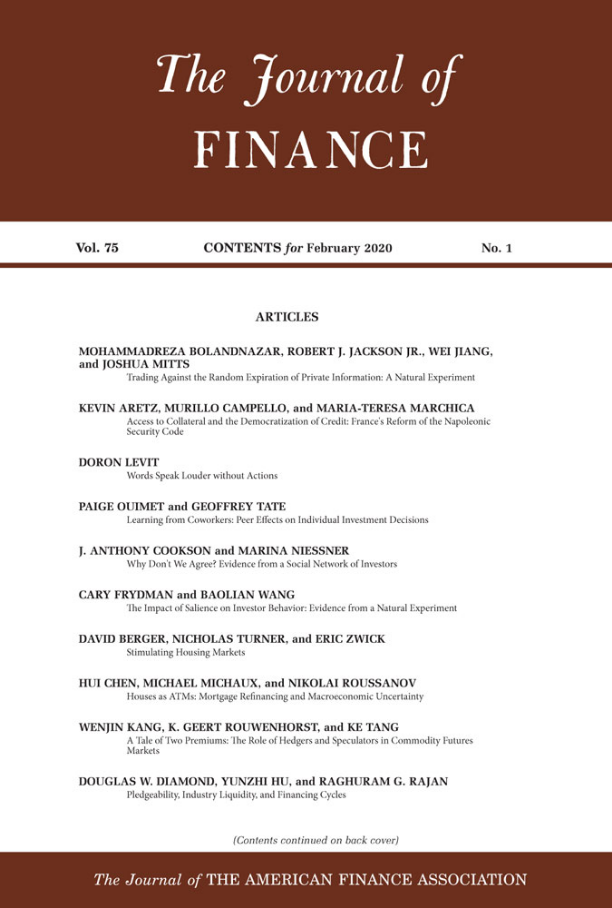
Going Public and the Internal Organization of the Firm
in: Journal of Finance, im Erscheinen
Abstract
<p>We examine how firms adapt their organization when they go public. To conform with the requirements of public capital markets, we expect IPO firms to become more organized, making the firm more accountable and its human capital more easily replaceable. We find that IPO firms transform into a more hierarchical organization with smaller departments. Managerial oversight increases. Organizational functions dedicated to accounting, finance, information and communication, and human resources become much more prominent. Employee turnover is sizeable and directly related to changes in hierarchical layers. New hires are better educated, but younger and less experienced than incumbents, which reflects the staffing needs of a more hierarchical organization. Wage inequality increases as firms become more hierarchical. Overall, going public is associated with a comprehensive transformation of the firm's organization which becomes geared towards efficiently operating a public firm.</p>
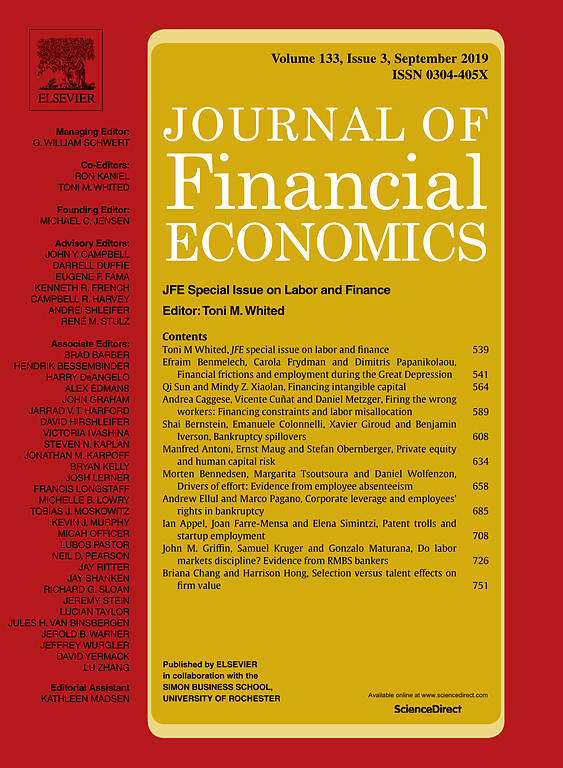
Private Equity in the Hospital Industry
in: Journal of Financial Economics, September 2025
Abstract
<p>We examine employment and patient outcomes at hospitals acquired by private equity (PE) firms and PE-backed hospitals. While employment declines at PE-acquired hospitals, core medical workers (physicians, nurses, and pharmacists) increase significantly. The proportion of wages paid to core workers increases at PE-acquired hospitals whereas the proportion paid to administrative employees declines. These results are most pronounced for deals where the acquirers are publicly traded PE-backed hospitals. Non-PE-backed acquirers also cut employment but do not increase core workers or reduce administrative expenditures. Finally, PE-backed acquirers are not associated with worse patient satisfaction or mortality rates compared to their non-PE-backed counterparts.</p>
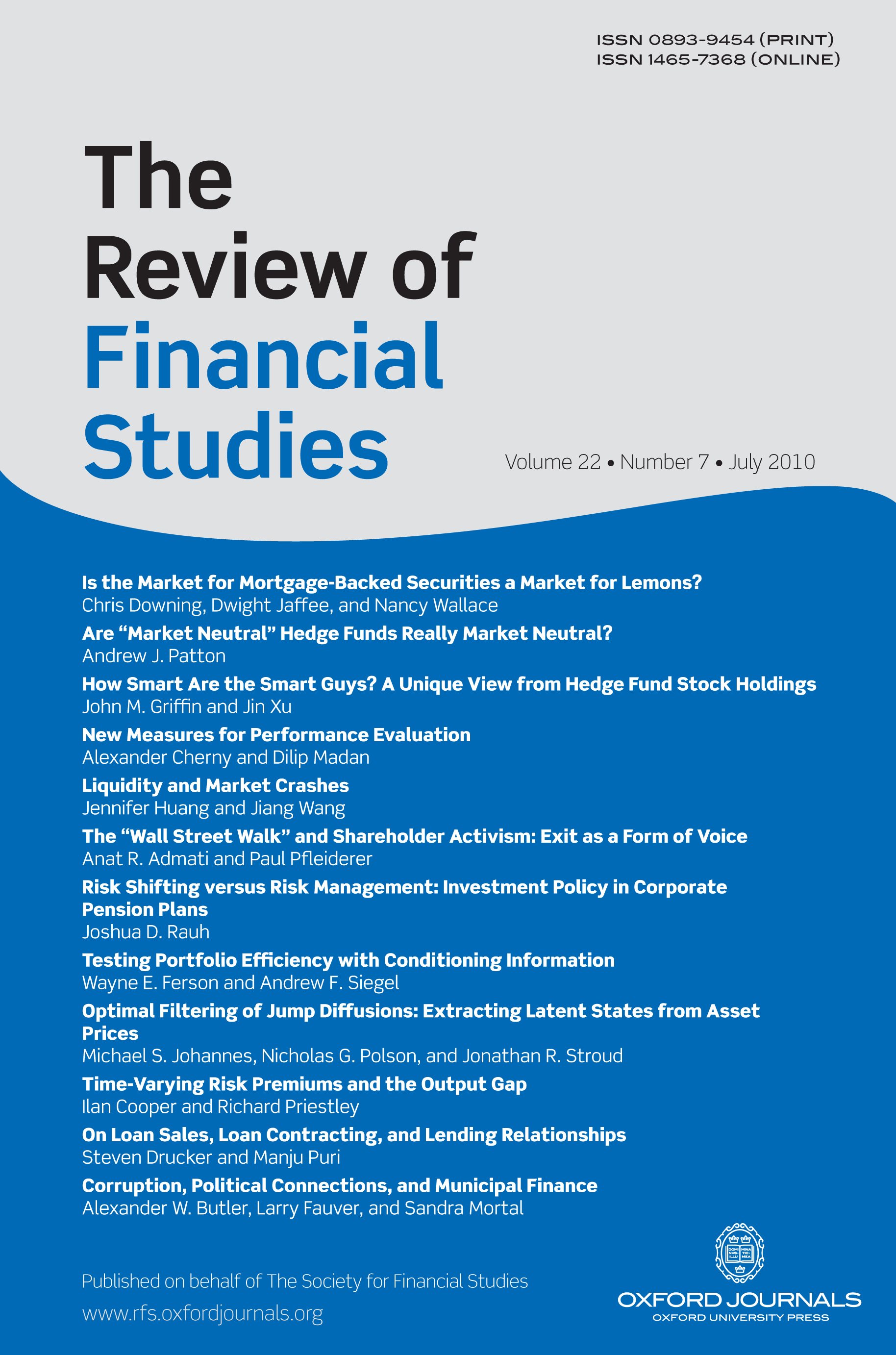
Cross-Subsidization of Bad Credit in a Lending Crisis
in: Review of Financial Studies, Nr. 5, 2025
Abstract
<p>We study the corporate-loan pricing decisions of a major, systemic bank during the Greek financial crisis. A unique aspect of our data set is that we observe both the actual interest rate and the “break-even rate” (BE rate) of each loan, as computed by the bank’s own loan-pricing department (in effect, the loan’s marginal cost). We document that low-BE-rate (safer) borrowers are charged significant markups, whereas high-BE-rate (riskier) borrowers are charged smaller and even negative markups. We rationalize this de facto cross-subsidization through the lens of a dynamic model featuring depressed collateral values, impaired capital-market access, and limit pricing.</p>
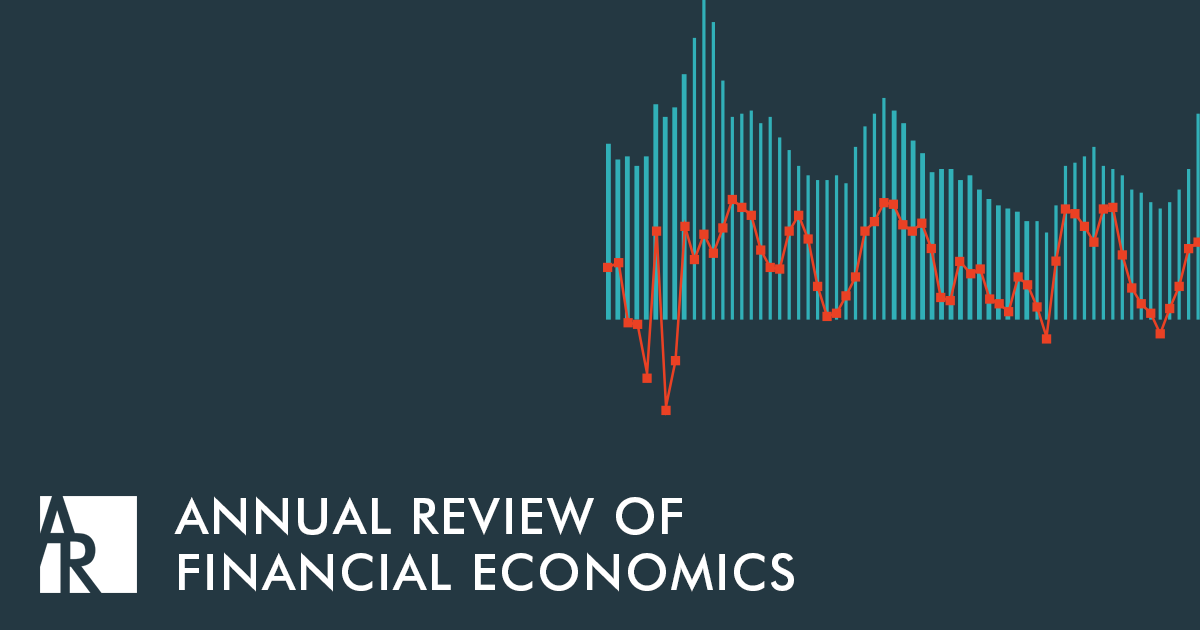
Political Polarization and Finance
in: Annual Review of Financial Economics, November 2024
Abstract
<p>We review an empirical literature that studies how political polarization affects financial decisions. We first discuss the degree of partisan segregation in finance and corporate America, the mechanisms through which partisanship may influence financial decisions, and the available data sources used to infer individuals’ partisan leanings. We then describe and discuss the empirical evidence. Our review suggests an economically large and often growing partisan gap in the financial decisions of households, corporate executives, and financial intermediaries. Partisan alignment between individuals explains team and financial relationship formation, with initial evidence suggesting that high levels of partisan homogeneity may be associated with economic costs. We conclude by proposing several promising directions for future research.</p>

Flight to Safety: How Economic Downturns Affect Talent Flows to Startups
in: Review of Financial Studies, Nr. 3, 2024
Abstract
<p>Using proprietary data from AngelList Talent, we study how startup job seekers’ search and application behavior changed during the COVID-19 downturn. We find that workers shifted their searches and applications away from less-established startups and toward more-established ones, even within the same individual over time. At the firm level, this shift was not offset by an influx of new job seekers. Less-established startups experienced a relative decline in the quantity and quality of applications, ultimately affecting their hiring. Our findings uncover a flight-to-safety channel in the labor market that may amplify the procyclical nature of entrepreneurial activities.</p>
Arbeitspapiere
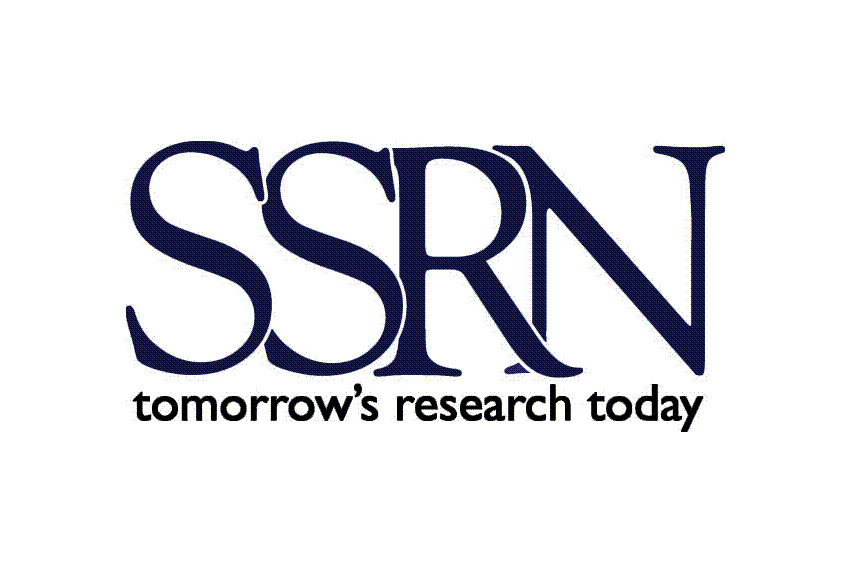
Can Nonprofits Save Lives Under Financial Stress? Evidence from the Hospital Industry
in: SSRN Working Paper, Nr. 4946064, 2024
Abstract
<p>We compare the effects of external financing shocks on patient mortality at nonprofit and for-profit hospitals. Using confidential patient-level data, we find that patient mortality increases to a lesser extent at nonprofit hospitals than at for-profit ones facing exogenous, negative shocks to debt capacity. Such an effect is not driven by patient characteristics or their choices of hospitals. It is concentrated among patients without private insurance and patients with higher-risk diagnoses. Potential economic mechanisms include nonprofit hospitals' having deeper cash reserves and greater ability to maintain spending on medical staff and equipment, even at the expense of lower profitability. Overall, our evidence suggests that nonprofit organizations can better serve social interests during financially challenging times.</p>
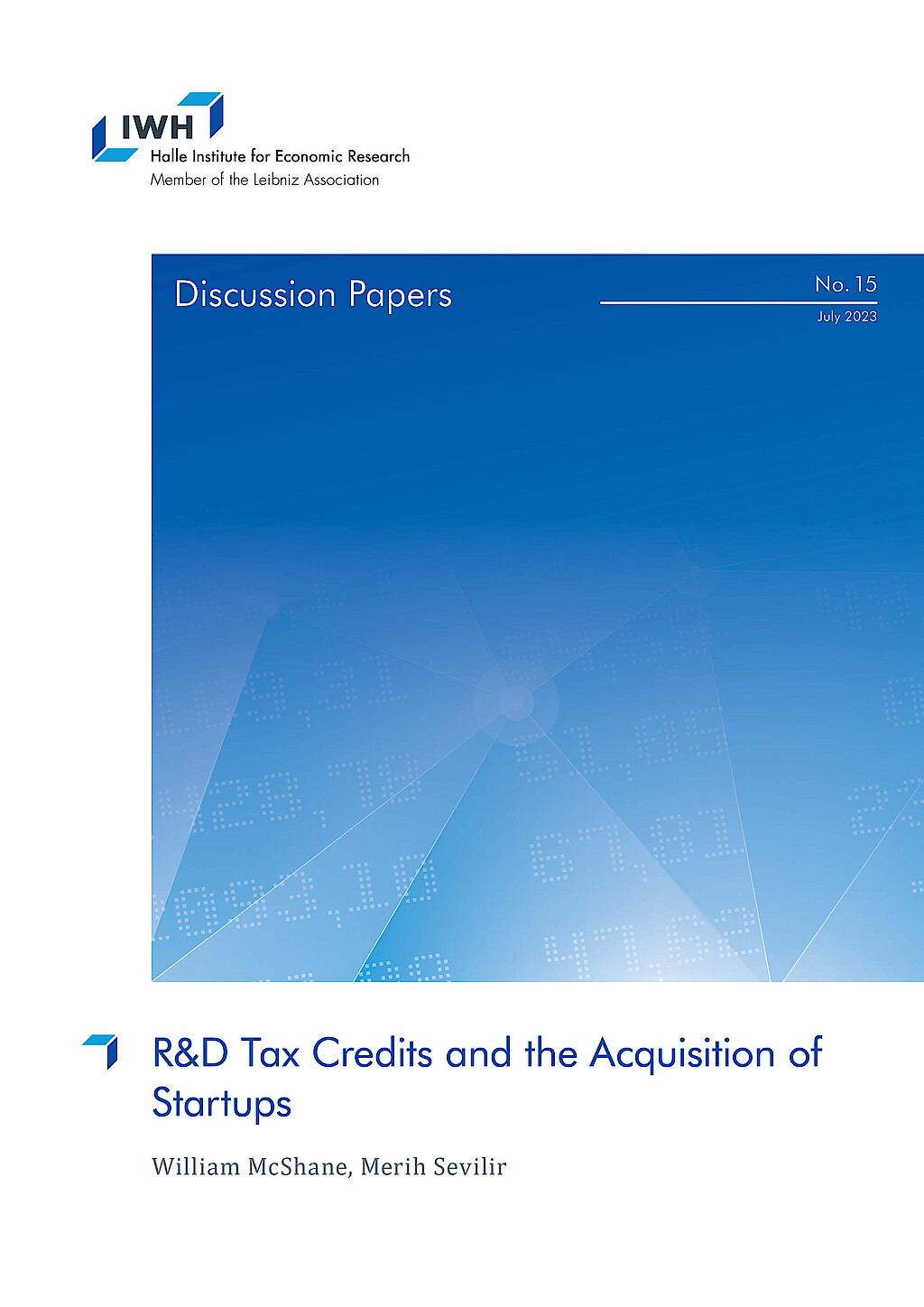
R&D Tax Credits and the Acquisition of Startups
in: IWH Discussion Papers, Nr. 15, 2023
Abstract
<p>We propose a novel mechanism through which established firms contribute to the startup ecosystem: the allocation of R&D tax credits to startups via the M&A channel. We show that when established firms become eligible for R&D tax credits, they increase their R&D and M&A activity. In particular, they acquire more venture capital (VC)-backed startups, but not non-VC-backed firms. Moreover, the impact of R&D tax credits on firms’ R&D is increasing with their acquisition of VC-backed startups. The results suggest that established firms respond to R&D tax credits by acquiring startups rather than solely focusing on increasing their R&D intensity in-house. We also highlight evidence that startups do not appear to benefit from R&D tax credits directly, perhaps because they typically lack the taxable income necessary to directly benefit from the tax credits. In this context, established firms can play an intermediary role by acquiring startups and reallocating R&D tax credits, effectively relaxing the financial constraints faced by startups.</p>














